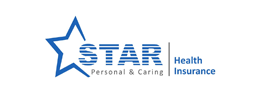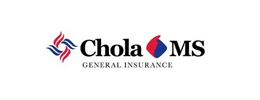Last updated on: September 19, 2025
Section 80D of the Income Tax Act provides significant tax benefits for individuals who purchase health insurance in India. Under this section, taxpayers can claim a deduction of up to ₹25,000 per year for health insurance premiums paid for themselves, their spouse, and dependent children. If the insured or their family members are senior citizens (aged 60 or above), the limit increases to ₹50,000. Additionally, an extra deduction of up to ₹50,000 is available for insurance purchased for dependent senior citizen parents. This means a taxpayer can claim a maximum deduction of up to ₹1 lakh if both self/family and parents are senior citizens. Payments must be made via non-cash modes and can include premiums for critical illness and preventive health checkups (up to ₹5,000 within the overall limit). Using Section 80D effectively can lower taxable income while ensuring health coverage.
Health insurance has become an essential part of financial planning for Indian families. Apart from securing your savings against unexpected medical expenses, health insurance policies also offer attractive tax benefits, mainly under Section 80D of the Income Tax Act. For taxpayers looking to maximise their tax savings for the assessment year 2025, understanding the rules around tax deductions on health insurance premiums can make a big difference.
Below is a clear, step-by-step exploration of Section 80D, its benefits, eligibility, features, and useful tips for claimers who want a worry-free experience. This article is designed for both beginners and experienced taxpayers.
Section 80D allows individuals and Hindu Undivided Families (HUFs) to claim deductions on premiums paid for health insurance policies. It covers premiums paid for yourself, your family, your parents, and includes expenses related to preventive health checkups. The deduction is available over and above the exemption limit of Section 80C.
| Insured Person | Age Bracket | Maximum Deduction (₹) |
|---|---|---|
| Self, spouse, children | Below 60 years | 25,000 |
| Self, spouse, children | Above 60 years | 50,000 |
| Parents | Below 60 years | 25,000 |
| Parents | Above 60 years | 50,000 |
| Preventive Health Check-up | Any age | Up to 5,000* |
*The preventive checkup limit is included within the overall Section 80D cap, not additional.
Expert Insight: According to the Central Board of Direct Taxes, for FY 2024-25, many Indian households save an average of ₹10,000 to ₹30,000 per year due to combined Section 80D claims.
If you are:
You are eligible for Section 80D tax deductions. Even if your parents are financially independent, you can claim premium payments on their behalf, provided you pay verifiable premium.
Rachna, a 35-year-old IT professional from Bengaluru, always struggled with tax savings. In late 2024, she bought a family floater policy for ₹23,000 for herself, husband, and daughter, and a separate senior citizen policy for her retired father worth ₹49,000. During her FY 2024-25 tax proof submission, Rachna claimed ₹23,000 under the self/family section and ₹49,000 for her father, saving nearly ₹18,000 in taxes.
To get the most benefit under Section 80D, structure policies to optimise limits. For example:
| Scenario | Age of Insured | Premium Paid | 80D Deduction Allowed (₹) |
|---|---|---|---|
| Self + Family | Below 60 | 22,000 | 22,000 |
| Self + Family | Above 60 | 40,000 | 40,000 (up to 50,000) |
| Parents | Below 60 | 18,000 | 18,000 |
| Parents | Above 60 | 48,000 | 48,000 (up to 50,000) |
| Preventive Check | Any | 4,500 | 4,500 (included in limit) |
Did You Know? Many families overpay without splitting premiums. Optimise how and for whom you pay — split policies among spouse or adult children to maximise group-wide tax savings.
Covered:
Not covered:
| Term | Meaning |
|---|---|
| Dependent Children | Not earning children under 25 (subject to insurer’s criteria) |
| Senior Citizen | Any individual or parent aged 60 years or more as per assessment year |
| Preventive Health Checkup | Health scan, blood test, physical exam subject to ₹5,000 annual cap |
People Also Ask Q: Can you claim 80D on health insurance for your in-laws? No, Section 80D does not provide deduction for in-laws. Only self, spouse, children, and parents are eligible.
No. Preventive health checkup expenses up to ₹5,000 can be claimed, but they are subsumed under the existing family or parent limit. You cannot claim ₹5,000 extra over and above the ₹25,000 or ₹50,000 Sections.
Suppose Nishant, 34, pays a premium of ₹23,000 for self and spouse and ₹4,000 towards preventive health checkup. He can claim a total of ₹25,000 under self/family 80D limit — not ₹27,000.
Expert Insight: Preventive checkups have gained popularity in urban households due to an overall rise in lifestyle-related diseases in India.
Did You Know? Online marketplaces now allow you to compare health plans instantly and calculate 80D tax savings in advance. This makes choosing the right health policy, and ensuring correct premium splits for tax benefit, significantly simpler.
| Section | Purpose | Max Deduction (₹) | Includes |
|---|---|---|---|
| 80C | Investments, LIC, PPF | 1,50,000 | Multiple |
| 80D | Health insurance | 1,00,000 (parents + self if both senior) | Health policies |
| 80CCD(1B) | NPS investment | 50,000 (extra) | Retirement savings |
This table shows why Section 80D is a crucial add-on to 80C, especially for families with elderly parents.
People Also Ask Q: Can I claim for premiums paid for more than one health policy in a year? Yes, as long as they relate to eligible people and combined total does not exceed the Section 80D cap.
| Situation | Can You Claim 80D? |
|---|---|
| Paying for spouse’s policy | Yes |
| Paying for adult earning child’s policy | No |
| Paying for parent’s policy | Yes |
| Paying for in-laws’ policy | No |
Expert Insight: In 2025, several insurers now offer bundled plans with annual checkups, which make documentation for Section 80D even easier.
Case Study:
Priya, aged 42, and Rajesh, aged 45, both salaried professionals, decide to buy a family floater policy for themselves and two school-going children for ₹21,000 and a separate senior citizen policy for Rajesh’s 67-year-old mother for ₹51,000. During FY 2024-25, they claim ₹21,000 (self/family floater) and ₹50,000 (mother’s premium - capped at limit), leading to a total deduction of ₹71,000. This helped them save over ₹19,000 in taxes.
Section 80D of the Income Tax Act allows you to claim deductions on health insurance premiums paid for self, family, and parents, making it a smart way to save taxes while staying protected. The deduction cap is ₹25,000 (self/family) or ₹50,000 (senior citizens), with a preventive checkup limit of ₹5,000 included. Proper planning and documentation are essential for maximising benefits.
A. The deduction is allowed for the entire amount paid in the relevant previous year, even if the policy covers only a part-year.
A. No, only the person who pays the premium can claim it; double claiming is not allowed.
A. Yes, such specific health plans are eligible for Section 80D deduction if they are health-related.
A. Yes, dependency is not required; only the premium-paid mode needs to be satisfied.
A. No, only actual proof needs to be furnished if asked by the Income Tax Department.
A. Yes, if they have taxable income in India and pay for eligible policies.
A. Yes. Any digital mode is valid, and often makes record-keeping easier.
All statistics verified as of May 2025. Please consult your tax advisor for personalised advice












How could we improve this article?
Written by Prem Anand, a content writer with over 10+ years of experience in the Banking, Financial Services, and Insurance sectors.
Prem Anand is a seasoned content writer with over 10+ years of experience in the Banking, Financial Services, and Insurance sectors. He has a strong command of industry-specific language and compliance regulations. He specializes in writing insightful blog posts, detailed articles, and content that educates and engages the Indian audience.
The content is prepared by thoroughly researching multiple trustworthy sources such as official websites, financial portals, customer reviews, policy documents and IRDAI guidelines. The goal is to bring accurate and reader-friendly insights.
This content is created to help readers make informed decisions. It aims to simplify complex insurance and finance topics so that you can understand your options clearly and take the right steps with confidence. Every article is written keeping transparency, clarity, and trust in mind.
Based on Google's Helpful Content System, this article emphasizes user value, transparency, and accuracy. It incorporates principles of E-E-A-T (Experience, Expertise, Authoritativeness, Trustworthiness).